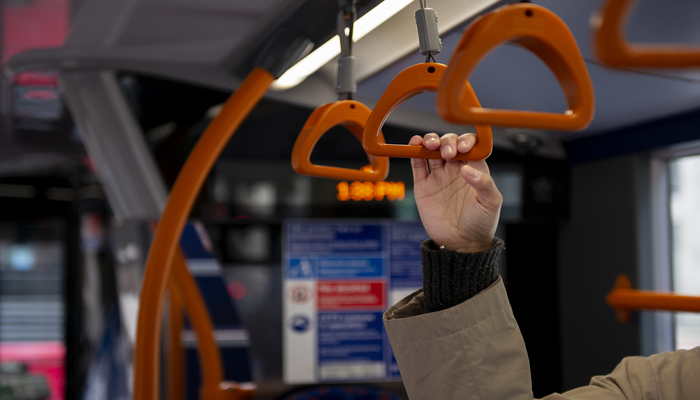Public transport startups are changing the way people move around cities, especially in places where traditional systems struggle to keep up. These innovative companies are offering smart solutions that make commuting more efficient, affordable, and sustainable.
As cities grow and congestion worsens, the need for alternative transport options is more pressing than ever. Public transport startups are rising to the challenge, using technology to provide new services that make daily commutes easier and greener.
Curious about how these startups are transforming urban mobility and what it means for your daily commute? Keep reading to discover the exciting changes taking place.
The Urban Mobility Crisis in South Africa
South Africa’s urban mobility crisis stems from various factors, including inadequate infrastructure, inefficient public transport services, and increasing traffic congestion. Millions of South Africans rely on minibus taxis, buses, and trains to commute, but these options often come with long waiting times, overcrowding, and safety concerns.
1. Overcrowded and Unreliable Public Transport
Minibus taxis account for approximately 70% of public transport trips in South Africa. While they provide an essential service, they are frequently overcrowded, poorly regulated, and involved in a high number of road accidents. Buses and trains, although more structured, suffer from delays, limited coverage, and insufficient capacity.
2. Rising Traffic Congestion and Pollution
As private car ownership increases, so does traffic congestion, especially in major cities. Roads are frequently gridlocked during peak hours, resulting in longer commute times and higher fuel consumption. Additionally, increased vehicle emissions contribute to air pollution, worsening environmental and health conditions.
3. High Transport Costs and Limited Accessibility
For many South Africans, transport costs consume a significant portion of their income. Minibus taxi fares fluctuate based on fuel prices, while bus and train fares may not always be affordable for low-income commuters. Moreover, many public transport routes do not reach remote or underserved areas, leaving people with limited commuting options.
Given these challenges, public transport startups are stepping in to bridge gaps in accessibility, affordability, and efficiency, making commuting more convenient and sustainable.
How Public Transport Startups Are Transforming Urban Mobility
1. Digital Ride-Sharing and Carpooling Services
One of the most notable disruptions in urban mobility comes from digital ride-sharing platforms. Companies like Bolt and inDriver have gained popularity in South Africa by offering safer, more convenient, and often more affordable alternatives to traditional taxis.
Unlike conventional taxis, which may operate without standardized pricing, ride-sharing apps allow passengers to estimate fares before booking, giving them better cost control. They also integrate digital payments, GPS tracking, and driver rating systems, enhancing security and transparency.
Carpooling startups are also growing, enabling commuters traveling similar routes to share rides and reduce expenses. Platforms that facilitate shared mobility can significantly decrease the number of vehicles on the road, leading to reduced congestion and lower carbon emissions.
2. Smart Bus and Shuttle Services
Traditional bus services in South Africa have long been criticized for their inefficiency. Public transport startups are addressing this by introducing smart bus and shuttle systems that rely on technology to enhance service quality.
Some startups have developed mobile applications that allow commuters to track bus arrivals in real time, reducing uncertainty and waiting times. Others have introduced shuttle services that operate on fixed routes with pre-booked seating, providing a more comfortable and predictable commuting experience.
For example, WhereIsMyTransport, a South African startup, uses data collection and analytics to improve public transport networks. By mapping informal transit routes, the company helps authorities and commuters optimize travel decisions, making urban mobility more efficient.
3. Electric and Sustainable Transport Solutions
With growing concerns over climate change and air pollution, many public transport startups are turning to electric and sustainable mobility solutions.
Startups in cities like Cape Town are experimenting with electric minibus taxis, aiming to reduce emissions and operating costs. While the upfront investment in electric vehicles (EVs) can be high, long-term savings on fuel and maintenance make them an attractive alternative.
Other initiatives focus on micromobility, such as bike-sharing and e-scooter rentals, which offer eco-friendly options for short-distance travel. Although still in early stages, these services could complement existing public transport systems, making urban mobility more versatile and sustainable.
4. Mobility-as-a-Service (MaaS) Platforms
Another groundbreaking innovation in urban mobility is Mobility-as-a-Service (MaaS). These platforms integrate multiple transportation modes—including buses, ride-sharing, trains, and micromobility options—into a single digital interface.
Some South African startups are developing mobile apps that allow users to plan and book multi-modal journeys seamlessly. Instead of relying on a single transport method, commuters can combine different options for faster and more cost-effective travel.
By offering subscription-based transport services, MaaS platforms can also make commuting more affordable and predictable, reducing dependence on private car ownership.
Challenges Faced by Public Transport Startups
While public transport startups offer promising solutions, they also face significant obstacles that hinder their growth and adoption.
1. Regulatory and Legal Barriers
Many startups struggle with complex regulations that were designed for traditional transport systems. Government policies may not always accommodate new business models, leading to licensing challenges and operational restrictions.
For example, ride-sharing services have faced opposition from traditional taxi associations, leading to legal disputes and regulatory uncertainty. Similarly, electric vehicle initiatives may be slowed by a lack of supportive policies and infrastructure.
2. Infrastructure and Investment Constraints
For sustainable transport solutions like electric minibuses or bike-sharing to succeed, they require adequate infrastructure, including charging stations and well-maintained roads. However, many South African cities lack the necessary facilities, making it difficult for startups to scale their operations.
Additionally, securing investment can be a challenge, as many investors may be hesitant to fund capital-intensive mobility projects without clear profitability.
3. Public Adoption and Trust
Changing commuter behavior takes time. Many South Africans are accustomed to informal transport options like minibus taxis and may be hesitant to switch to digital or app-based alternatives.
Educating the public about the benefits of public transport startups is crucial to increasing adoption. Startups must also build trust by ensuring their services are safe, reliable, and accessible to all economic groups.
The Future of Public Transport Startups in South Africa
Despite these challenges, the future of public transport startups in South Africa looks promising. As cities continue to grow, there will be a greater need for efficient and sustainable urban mobility solutions.
Several trends will shape the future of the industry:
- Advancements in AI and Big Data: Real-time data analytics will help optimize transport routes, reduce congestion, and improve service reliability.
- Growth of Electric and Hybrid Vehicles: As EV technology becomes more affordable, more startups will adopt clean energy solutions.
- Policy Reforms and Government Support: Increased collaboration between startups and regulatory bodies can create a more enabling environment for innovation.
- Integration of Contactless and Digital Payment Systems: Seamless payment options will enhance user experience and drive wider adoption of mobility services.
Conclusion: Driving Change Through Innovation
In a country where transport inefficiencies affect millions of people daily, public transport startups are playing a critical role in reshaping urban mobility. By leveraging technology and innovative business models, these startups are improving accessibility, affordability, and sustainability in South African cities.
While challenges remain, the potential for transformation is immense. With continued investment, supportive policies, and increased commuter awareness, public transport startups have the power to revolutionize how people move, creating a more efficient and connected urban transport system for the future.





